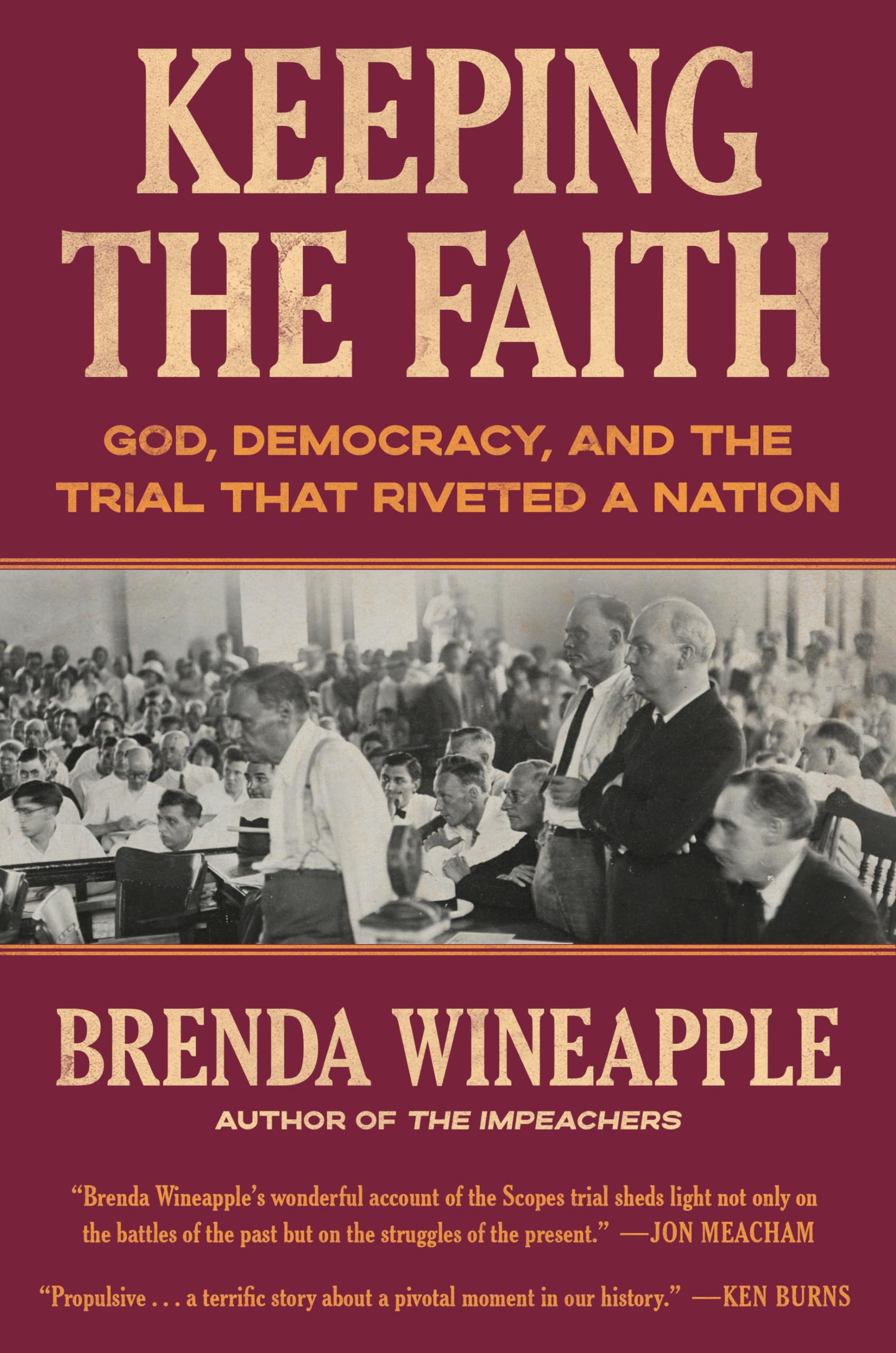In Wineapple’s incisive treatment, the trial reveals how opponents in a cultural conflict can be similarly vulnerable and shortsighted. Throughout the book, she echoes another reporter who covered the proceedings, who wrote in one dispatch that, “at bottom, down in their hearts,” people on both sides of the debate were “equally at a loss.” The whole country did go a bit mad over the monkey trial: Some supposedly enlightened intellectuals—we might call them liberals today—attacked all things spiritual and religious (Darrow, for one, simply laughed at the “amen”s uttered in the courtroom). Many Christians galvanized around the value of unquestioned faith and rejected critical discourse. The KKK, who saw in Bryan a champion, murmured “America Forever” in their growing ranks. All the while, onlookers continued to purchase monkey souvenirs on the streets of Dayton, Tennessee, where the trial was held.
Many people around the world looked on with equal parts awe, embarrassment, and disgust. It was a moment when a relatively young country showed itself to be without tact or sense.
What those outside the United States might have viewed with bewilderment makes perfect sense to a historian like Wineapple. Modern notions of democracy and religious liberty were written into the founding of the United States, and yet a portion of its population has always looked to God and the Bible in moments of crisis. Even as the colonies struggled to survive in the 1740s, a religious “awakening” saw settlers turning to scripture and looking to evangelism to provide purpose in an uncertain world. The aftermath of World War I—defined by stark economic conditions, global mourning, and the wholesale destruction of Europe—roused a certain strain of Christian America, including people like Bryan, who believed that restoring religious ideas of tradition, unity, and purity would protect the country from turmoil.
The United States was never as traditional, unified, or pure as Bryan claimed, but that scarcely mattered to him or his followers. What did matter was his fear that conservatives were losing what they took to be their God-given place in the world. According to Wineapple, “Underlying this anxiety about the origins of humankind was of course another anxiety: that the vaunted superiority of the so-called Nordics may be a fiction.” Evolution implied that life originated, in the words of a commentator, “in the jungle” in Africa, not a divine paradise. Bryan’s defense of creationism doubled as an endorsement of a subset of white America. The Chicago Defender wrote that evolution “conflicts with the South’s idea of her own importance. Anything which tends to break down her doctrine of white superiority she fights.’”
